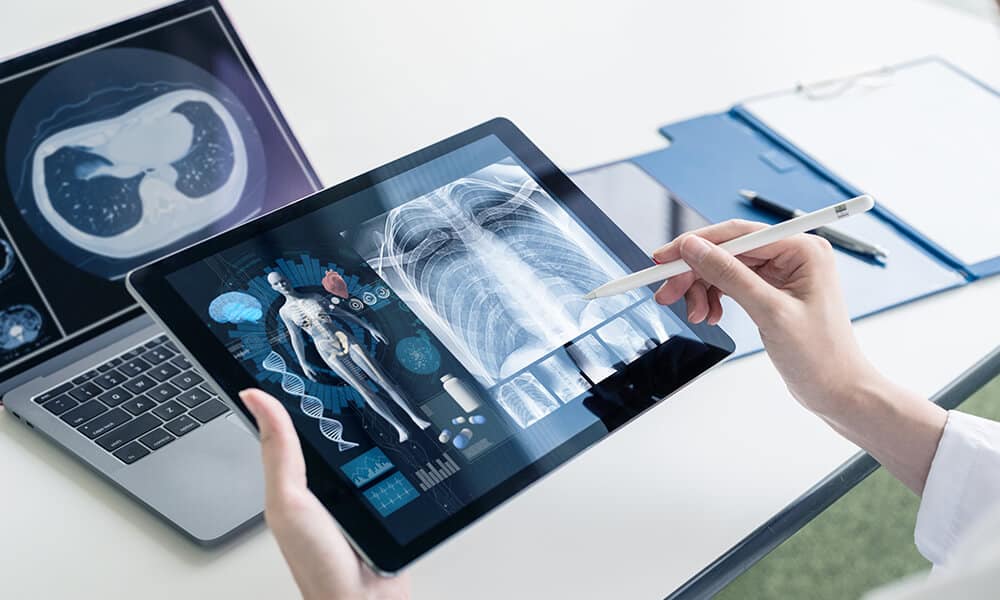Empowering Patients with Release of Information: Improving Access to Personal Health Records

Access to personal health information has emerged as a critical component of making well-informed decisions and actively engaging in one’s healthcare journey in the era of patient-centered care and empowered healthcare consumers.
It is essential to have access to accurate and current health information for various reasons, including comprehending treatment plans and coordinating care between doctors. It is here that the release of information (ROI) services comes into play, giving individuals control over their health records by facilitating easy access. Giving patients more authority and control over their health information is the primary goal of ROI.
This article emphasizes how patient access to personal health records can significantly improve patient participation, patient-provider interactions, and healthcare results.
Understanding Release of Information (ROI) Services
ROI services link patients and their health information, allowing them to access and examine critical medical reports. To securely reveal and share patient health information, healthcare organizations adopt several procedures and methods.
Their primary responsibility is to make it easier for patients to access their health information, enabling them to manage their medical care actively. The availability of patients’ medical records, diagnostic results, treatment plans, and other important health information is guaranteed through ROI services.
Access to a variety of information is made possible via ROI services, including but not limited to:
- Medical Records: Patients can access their medical history, including notes from the doctor, details about the diagnosis, and summaries of the treatments they received.
- Lab findings: Access to test and lab findings, including blood work, imaging studies, and pathology reports, allows patients to keep track of their health status and communicate with other healthcare professionals.
- Imaging Reports: Patients who see radiology reports from tests like X-rays, MRIs, or CT scans can better understand the results and have productive conversations with medical professionals.
- Progress Notes: Patients can examine medical experts’ notes regarding consultations, follow-up appointments, and therapy modifications.
Empowering Patients through ROI Services
ROI services play a revolutionary role in patient empowerment by giving patients more control over their health information.
The ability to actively participate in managing their health using ROI services empowers patients. They can learn important information about their medical history, diagnoses, treatment options, and test findings by accessing their personal health data.
The flexibility and ease with which personal health records can be accessed is one of the critical benefits of ROI services. Patients can access their health information online through secure patient portals or other digital platforms made available by numerous healthcare organizations. Thanks to electronic access, patients now have 24/7 access to their health records, reducing the need for paper records.
ROI services allow patients to easily share personal health information with healthcare professionals, carers, or other necessary parties. To improve care coordination, patients can exchange summaries of their health information or grant access to specific documents.
Patients who use ROI services are empowered to take an active role in their treatment. They may participate in discussions about their treatment plans, ask knowledgeable questions, and offer valuable input if they can access their health records.
In addition to empowering patients, ROI services assist carers and support systems. Patients can allow specific people access to their health information, such as family members or carers. This enables carers to schedule appointments, manage medication, and stay informed about the patient’s status.
Benefits of Improved Access to Personal Health Records
For patients, improved access to personal health records has several significant advantages. These advantages consist of:
Informed Decision Making
Patients are better equipped to make educated healthcare decisions with access to their health records. Patients can actively participate in discussions with healthcare providers and make decisions that align with their preferences and goals when they are thoroughly aware of their medical history, test results, and treatment plans.
Improved Care Coordination
Patients can readily communicate their medical information with the many healthcare professionals involved in their treatment because to better access to personal health records. This encourages seamless care coordination, avoids unnecessary tests or treatments, lowers the risk of medical errors, and ensures that all healthcare professionals operate from a complete and current understanding of the patient’s medical history.
Increased Engagement
Patients are encouraged to actively manage their health by having access to their medical records. Patients can spot patterns, set health objectives, and assess progress by tracking their health data, such as blood pressure or blood glucose measurements.
Improved Safety and Accuracy
Access to personal health records reduces the chance of medical errors by enabling patients to check their data for correctness. Patients may spot and fix any errors or discrepancies in their medical records, lowering the possibility of a false diagnosis or an ineffective course of therapy.
Continuity of Care
Access to personal medical records makes treatment continuity easier, especially for patients who switch between healthcare facilities or see new healthcare professionals. With a thorough understanding of their medical history, patients can give vital information to new practitioners, facilitating smooth transitions and preventing needless repetition of tests or treatments.
Conclusion
Understanding and using ROI services give patients more control over their health information, enabling them to make educated decisions and actively participate in treatment. The ease and adaptability of using secure patient portals or other digital platforms to access personal health records increase patients’ engagement and awareness of their health.
Additionally, it promotes collaborative care and leads to better healthcare outcomes when health information can be quickly shared with medical professionals, carers, and other relevant parties. Empowering patients with ROI services is paramount in today’s patient-centered healthcare environment. Outsourcing release of information services can be a great way to tap into professional ROI service providers’ expertise and specialized knowledge.
